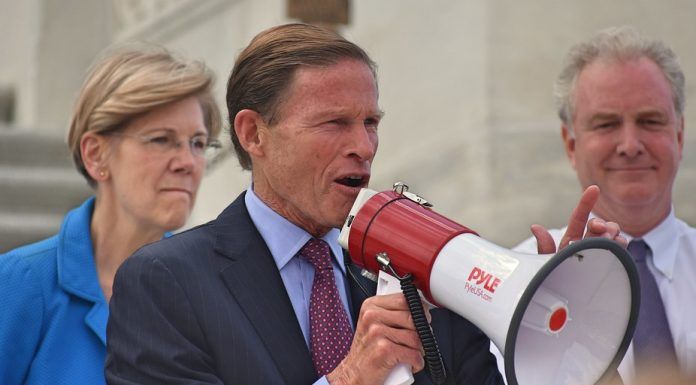Senate Democrats are using the Supreme Court’s decision to take up a case about state abortion restrictions to re-up their threats to pack the court if the justices rule in a way leftists don’t like.
The Supreme Court’s conservative majority agreed to hear a case regarding a Mississippi law that bans almost all abortions after 15 weeks.
The court’s order sets up a showdown over abortion—probably in the fall—with a conservative-leaning court possibly ready to revers the controversial, nearly 50-year-old Roe v. Wade ruling that established abortion as the law of the land.
Although the US system of checks and balances has long relied upon a separation of powers, radical leftists in Congress promised to punish the court for ruling on a politically charged case that they disagreed with, according to The Hill.
“It will inevitably fuel and drive an effort to expand the Supreme Court if this activist majority betrays fundamental constitutional principles,” said Sen. Richard Blumenthal, D-Conn., a member of the Senate Judiciary Committee. “It’s already driving that movement.”
Blumenthal admitted the court-packing effort would be difficult to get through Congress, where moderate Democrats such as Sen. Joe Manchin, D-W.Va., have already declared it a non-starter. But he noted a pro-life decision by the Supreme Court could lead to more leftist pressure on Manchin and other reluctant senators.
“Chipping away at Roe v. Wade will precipitate a seismic movement to reform the Supreme Court,” he claimed. “It may not be expanding the Supreme Court—it may be making changes to its jurisdiction, or requiring a certain numbers of votes to strike down certain past precedents.”
Far-left activists who want to pack the court have admitted their attacks on the court have little to do with the abortion case itself.
In keeping with the long-held strategy promoted by subversives such as Saul Alinsky, they instead see the brewing crisis as an opportunity to push their agenda and drive the Democrat party farther to the extreme fringes.
“Part of our strategy here is to build support slowly but surely and grind out as much consensus around these ideas as we can for now and then be ready for if and when a big moment grabs the public attention comes,” Brian Fallon, executive director of Demand Justice. “I think [the Supreme Court’s] next term is shaping up to be that.”

